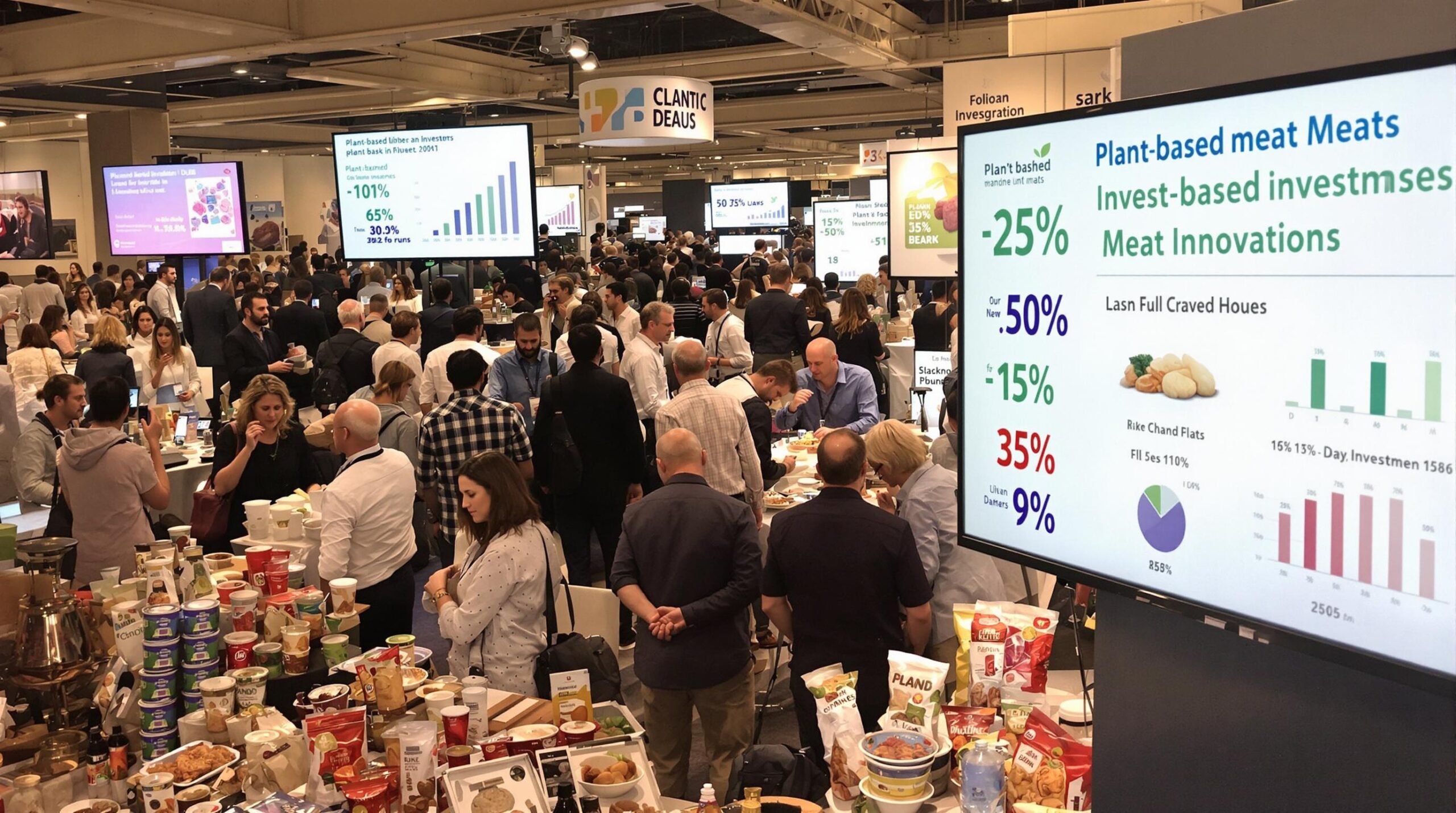The plant-based meat industry has seen significant investment growth recently. Investors and companies are pouring funds into this sector, recognizing its potential. Consumer demand for sustainable and ethical food alternatives drives this interest.
Rising Consumer Awareness and Demand
More people are becoming aware of the environmental impact of traditional meat production. Livestock farming contributes considerably to greenhouse gas emissions. Plant-based meat offers a more sustainable and environmentally friendly alternative. This awareness influences consumer behavior, boosting demand for plant-based products.
Health consciousness is another crucial factor. Many individuals are adopting plant-based diets for their health benefits. These include lower cholesterol and reduced risk of heart disease. Studies show that increased consumption of plant-based foods can lead to better overall health outcomes. With health considerations in mind, more consumers are making conscious dietary choices. Consequently, this shift fuels the plant-based meat market.
Ethical concerns also play a significant role. Animal welfare issues associated with industrial farming practices are increasingly concerning consumers. By choosing plant-based meats, consumers express their commitment to animal welfare. This ethical consideration has significantly driven the plant-based market’s growth.
Technological Innovations Driving Growth
Technological advancements have transformed the plant-based meat sector. Companies are investing in innovative research and development efforts to improve product quality, making plant-based meats taste and feel more like their traditional counterparts.
Improved textures and flavors have attracted a wider audience. As a result, even non-vegetarians are willing to try these alternatives. Companies like Beyond Meat and Impossible Foods have led the way with their groundbreaking products. Their success has prompted others to enter this burgeoning market.
Furthermore, production technologies have become more efficient. This efficiency allows for faster scaling and distribution. As these technologies develop, production costs decrease. Lower costs enable companies to offer products at more competitive prices. This affordability enhances the market’s accessibility, reaching more consumers.
Economic Benefits and Market Potential
The plant-based meat industry offers substantial economic benefits. It creates new job opportunities in research, production, and distribution, which span various sectors, including food science and engineering.
Investors see strong growth potential in the plant-based meat market. According to a recent report, the global plant-based meat market is projected to grow significantly. Predictions estimate the market could reach $15.7 billion by 2027. Such forecasts attract funding from venture capitalists and multinational corporations.
Consumer brands and traditional meat companies are also investing. Tyson Foods, a leading meat producer, invested in plant-based startups. They strive to diversify their investments and capitalize on market trends, which demonstrates the industry’s expansive potential.
Challenges in the Plant-Based Meat Sector
Despite investment enthusiasm, challenges persist in the plant-based meat sector. One significant challenge is achieving cost parity with traditional meat. Plant-based meat products are often more expensive than conventional options, which can deter potential consumers from making the switch.
Addressing the cost issue requires continued advancements in production processes. Companies must focus on improving efficiency and reducing costs. Achieving cost parity will be crucial for expanding the market further.
Taste and texture remain areas for improvement. While significant advancements have been made, many consumers still prefer the taste of traditional meat. Continued research and development efforts are essential to overcoming these sensory challenges.
Skepticism also exists in specific consumer segments. Some individuals doubt the nutritional completeness of plant-based meats. Companies need to communicate the nutritional benefits of their products transparently. Building consumer trust will be key to expanding market adoption.
Transitioning to a Sustainable Future
Investment surges in the plant-based meat industry align with broader environmental goals. Countries worldwide strive to meet sustainability targets and reduce carbon footprints. Transitioning to plant-based diets can play a crucial role in these efforts.
Governments and NGOs are promoting plant-based diets as part of climate action plans. Public policies and incentives support the growth of this industry and encourage consumers to adopt more sustainable eating habits.
Furthermore, investors recognize the potential impact of their investments on global sustainability. By funding plant-based companies, they contribute to environmental solutions. This alignment with sustainability objectives guides investment strategies.
Conclusion
The surge in plant-based meat investments showcases the market’s promising future. Rising consumer awareness and demand drive this growth. Technological innovations enhance product quality and affordability, expanding market accessibility.
Despite challenges like achieving cost parity and improving taste, the sector remains robust. Economic benefits and environmental alignment make plant-based meat an attractive investment opportunity.
As consumers increasingly prioritize sustainability and ethics, the industry’s potential unfolds. Decoding the surge in plant-based meat investments reveals a transformative shift towards a more sustainable future.


